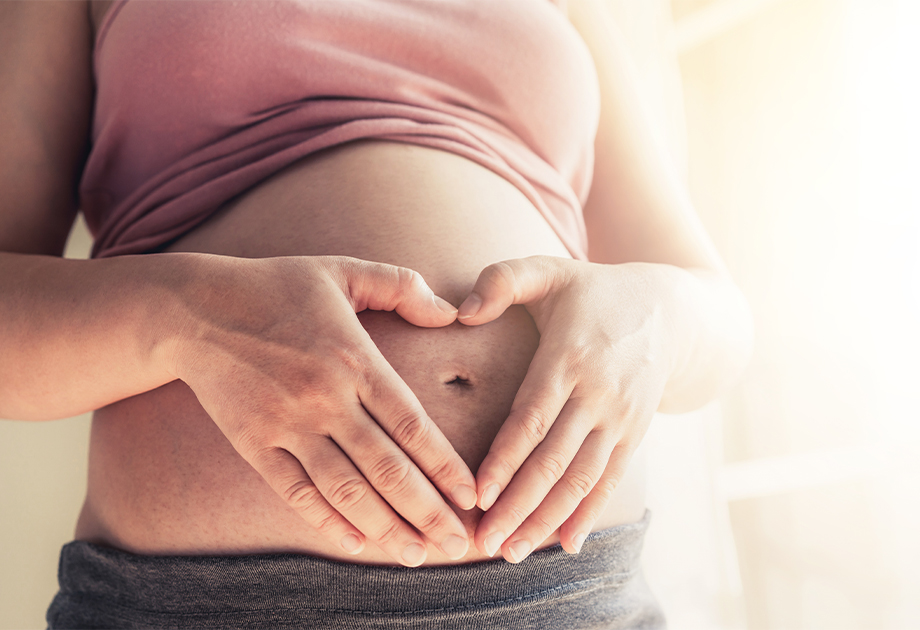|
Getting your Trinity Audio player ready...
|
Welcome to our comprehensive guide on how to avoid major Pregnancy complications and remedies. Pregnancy is a beautiful and transformative journey but can come with its fair share of challenges. Expectant mothers need to be aware of the potential complications that may arise during different stages of pregnancy and how to limit their impact.
Prenatal care is crucial to identifying and managing potential complications during pregnancy. Pregnancy complications and remedies Regular visits to your healthcare provider allow for early detection of any issues, ensuring prompt intervention and appropriate management. 15 Pregnancy complications and remedies & Prenatal care includes a series of check-ups, screenings, and tests to monitor the health of both the mother and the developing baby.
Pregnancy Complications in Early Stage
1. Miscarriage
Miscarriage, also known as spontaneous abortion, is the loss of a pregnancy before the 20th week. It is a heartbreaking experience for expectant parents and can occur due to various factors, such as chromosomal abnormalities, hormonal imbalances, or maternal health conditions. While miscarriages cannot always be prevented, specific steps can help reduce the risk, such as avoiding smoking, alcohol, and illicit drugs, maintaining a healthy weight, and managing chronic health conditions.
2. Ectopic Pregnancy
An ectopic pregnancy is a potentially life-threatening condition where the fertilised egg implants outside the uterus, commonly in the fallopian tube. It requires immediate medical attention, as it can lead to rupture and internal bleeding. Symptoms of an ectopic pregnancy may include severe abdominal pain, vaginal bleeding, and dizziness. Early detection through regular prenatal care is crucial for managing this pregnancy complication.
3. Gestational Diabetes
Gestational diabetes is a form of diabetes that develops during pregnancy. It affects the body’s ability to regulate blood sugar levels, leading to complications if left unmanaged. Controlling blood sugar levels through dietary modifications, regular exercise, and sometimes medication helps minimize the risks associated with gestational diabetes. Proper prenatal care includes screening for gestational diabetes to ensure early detection and appropriate management.
4. Morning Sickness
Morning sickness refers to nausea and vomiting commonly experienced by pregnant women, particularly during the first trimester. While it is a normal part of pregnancy, severe and persistent morning sickness, known as hyperemesis gravidarum, can lead to dehydration and nutritional deficiencies. Managing morning sickness involves dietary adjustments, such as eating small, frequent meals and avoiding triggers like solid odors. In some cases, medication may be prescribed to alleviate symptoms.
5. Fatigue
Especially in the first and third trimesters, fatigue is a common symptom among pregnant women. The hormonal changes and increased metabolic demands of pregnancy contribute to fatigue. Getting adequate rest, practising good sleep hygiene, and maintaining a balanced diet can help combat pregnancy-related fatigue. Gentle exercises like prenatal yoga or swimming can also boost energy levels.
Pregnancy Complications in the Second Trimester
6. Preterm Labor
Preterm labour is the onset of labor before the 37th week of pregnancy. It risks the baby’s health and development, as they may not fully mature. Certain factors increase the likelihood of preterm labor, such as a history of preterm birth, multiple pregnancies, and specific uterine or cervical abnormalities.
Managing preterm labour involves close monitoring, medications to halt contractions, and sometimes bed rest.
7. Preeclampsia
Preeclampsia is a severe condition of high blood pressure and organ damage during pregnancy, such as the liver and kidneys. It typically develops after the 20th week and requires prompt medical attention. Regular prenatal check-ups include monitoring blood pressure and screening for preeclampsia. Treatment may involve medication, rest, dietary changes, and close monitoring of the mother and baby.
8. Gestational Hypertension
Gestational hypertension, or pregnancy-induced hypertension, is high blood pressure that develops during pregnancy. It usually resolves after giving birth. While it may not always lead to pregnancy complications, close monitoring is essential to ensure the well-being of both the mother and the baby. Treatment may involve lifestyle modifications, medications, and frequent prenatal check-ups.
9. Placenta Previa
Placenta previa is a condition where the placenta partially or completely covers the cervix, obstructing the baby’s exit during birth. It can cause heavy bleeding and harm the mother and the baby, creating severe pregnancy complications. Placenta previa is detected through routine prenatal ultrasounds. Depending on the severity and gestational age, management may involve bed rest, monitoring, or, in some cases, a cesarean section.
10. Urinary Tract Infections
Urinary tract infections (UTIs) are common during pregnancy due to hormonal changes and the pressure exerted on the bladder by the growing uterus. UTIs can lead to kidney infections if left untreated. Prompt diagnosis and treatment are crucial to preventing complications. Drinking plenty of water, practising good hygiene, and urinating frequently can help reduce the risk of UTIs.
Pregnancy Complications in the Third Trimester
11. Gestational Diabetes
Gestational diabetes can develop or persist during the third trimester, requiring continued management to minimize complications. A well-balanced diet, regular physical activity, blood sugar monitoring, and medications (if necessary) are critical components of managing gestational diabetes during this stage.
12. Preterm Labor
Preterm labor remains a concern in the third trimester, and expectant mothers with a history of preterm birth or other risk factors require extra attention. Regular monitoring, close communication with healthcare providers, and following recommended precautions are essential to reducing the risk of preterm labour.
13. Placental Abruption
Placental abruption occurs when the placenta separates from the uterine wall before delivery. It can cause heavy bleeding and compromise the baby’s oxygen and nutrient supply. Symptoms include sudden abdominal pain, vaginal bleeding, and uterine tenderness. Immediate medical attention and an emergency cesarean section may be required.
14. Group B Streptococcus (GBS) Infection
GBS is a type of bacteria that can be present in the vagina or rectum. It risks the baby during childbirth, potentially leading to severe infections. Prenatal care includes screening for GBS and, if positive, administering antibiotics during labor to protect the baby.
15. Cholestasis of Pregnancy
Cholestasis of pregnancy is a liver disorder that affects the normal flow of bile, resulting in the accumulation of bile acids in the bloodstream. It causes intense itching, particularly on the hands and feet. Management includes medications to relieve symptoms, close monitoring of liver function, and timely delivery.
Managing Pregnancy Complications: Tips and Solutions
Pregnancy complications can be effectively managed by adopting specific strategies and lifestyle adjustments. Here are some tips to help minimize the risks and promote a healthy pregnancy:
1. Maintain a Healthy Lifestyle
– Eat a well-balanced diet rich in fruits, vegetables, whole grains, lean proteins, and healthy fats.
– Avoid excessive consumption of processed foods, sugary snacks, and beverages.
– Stay hydrated by drinking an adequate amount of water throughout the day.
– Limit caffeine intake and avoid alcohol and smoking.
2. Attend Regular Prenatal Check-ups
– Schedule and attend all recommended prenatal appointments to monitor the progress of your pregnancy.
– Discuss any concerns or symptoms with your healthcare provider promptly.
– Follow the prescribed prenatal vitamin and supplement regimen.
3. Follow a Nutritious Diet
– Consult with a registered dietitian or healthcare provider to create a customised meal plan that meets your nutritional needs.
– Incorporate foods rich in essential nutrients like folic acid, iron, calcium, and omega-3 fatty acids.
– Practice portion control and avoid overeating.
4. Stay Active with Exercise
– Engage in regular physical activity safe for pregnancy, such as walking, swimming, or prenatal yoga.
– Consult your healthcare provider before starting or modifying any exercise routine.
– Listen to your body and avoid activities that cause discomfort or excessive strain.
5. Manage Stress Levels
– Practice relaxation techniques like deep breathing exercises, meditation, or prenatal yoga to reduce stress and promote emotional well-being.
– Seek support from your partner, friends, or a professional counselor if needed.
– Engage in activities that bring you joy and help you unwind.
6. Stay Hydrated
– Drink plenty of water throughout the day to maintain hydration and support overall health.
– Monitor your urine color; pale yellow indicates proper hydration.
7. Educate Yourself
– Stay informed about the stages of pregnancy, common complications, and warning signs to watch out for.
– Read reliable pregnancy resources, attend prenatal education classes, or join support groups for expectant mothers.
8. Seek Emotional Support
– Pregnancy can bring about a range of emotions. Connect with your support system and share your feelings.
– Contact healthcare providers, counsellors, or therapists for additional support.
Pregnancy is a beautiful journey, but it is essential to know the potential pregnancy complications that can arise during different stages. By understanding these pregnancy complications and implementing the tips and solutions mentioned in this article, expectant mothers can take proactive steps to minimize risks and ensure a healthy and successful pregnancy. 15 Pregnancy complications and remedies. Remember to attend regular prenatal check-ups, maintain a healthy lifestyle, seek support when needed, and prioritise your well-being and the well-being of your growing baby. 15 Pregnancy complications and remedies.




